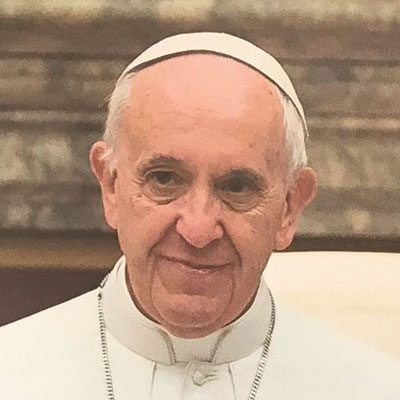About the Jubilee Year
The Jubilee Year holds profound significance for Catholics as a time of spiritual renewal and reconciliation. Rooted in biblical tradition and celebrated approximately every 25 years, it is an invitation to experience God’s mercy through acts of charity, confession and pilgrimage. Marked by the opening of the Holy Door at St. Peter’s Basilica on Dec. 24, 2024, and activities at other designated sites, the Jubilee Year symbolizes the opening of hearts to divine grace and a recommitment to faith and community. Take a moment to explore the Jubilee Year of Hope, to learn:
Jubilee FAQs
The 2025 Jubilee Year has as its central theme “Pilgrims of Hope” (taken from “Hope does not disappoint” Rom 5:5). In his papal bull Spes Nos Confundit, Pope Francis called on all people of goodwill to embrace the jubilee year as an opportunity to bring hope to the world. May this year, he wrote, be a “moment of genuine, personal encounter with the Lord Jesus, the ‘door’ (cf. Jn 10:7.9) of our salvation, whom the Church is charged to proclaim always, everywhere and to all as ‘our hope’ (1 Tim 1:1).”
A papal bull is a formal, official document issued by the pope that addresses significant matters within the Catholic Church, including announcements of jubilee years. It derives its name from the Latin word “bulla,” referring to the lead seal affixed to the document to authenticate it. Papal bulls are traditionally used for the most solemn or important decrees. Pope Francis announced the Jubilee Year of Hope in a papal bull entitled “Spes non confundit” (“Hope does not disappoint,” from Romans 5:5). Learn More
There are two types of jubilee years:
- Ordinary jubilees: Typically celebrated every 25 years.
- Extraordinary jubilees: Declared by the pope for special occasions, such as the Jubilee of Mercy in 2015-2016, called by Pope Francis.
Jubilee years provide a unique opportunity for spiritual growth, emphasizing God’s abundant mercy and the call to live a renewed life of faith and service. During a jubilee year, Catholics are encouraged to:
- Make pilgrimages to designated holy sites, especially in Rome
- Pass through Holy Doors, symbolizing entering God’s mercy
- Perform acts of penance and charity
- Receive special indulgences by fulfilling specific spiritual acts and prayers
The Jubilee has always been an event of great spiritual, ecclesial, and social significance in the life of the Church.

